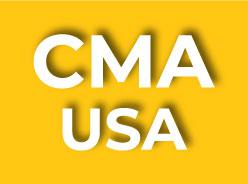It may surprise you that something so simple and evident as attempting the question papers properly will help you fetch a good score. Presenting your paper properly is also a very important element in scoring good marks, the way you write the paper will not only make an impression on the checker but it will also allow them to read your answers properly.
Here are 9 tips that will help you score well in your exams
- Read the question paper - twice! - Read the questions carefully and understand them well. See how much each question is worth. Make sure you answer your question logically and comprehensively, long answers don’t fetch you more marks, the correct points do.
- Make good use of the first 15 minutes - Use the 15 minutes, in the beginning, to thoroughly read your question paper. Try and mark the questions into categories easy, manageable and tough. This will help you to strategically form a plan to answer all the questions.
- Don’t stress about the tough questions - It is natural to feel worried as you see tough questions. Don’t worry about it as this will only affect your performance. It may look difficult, but if you are well prepared you will be able to crack the questions once you start to solve them. So be happy about the easy questions rather than get demotivated with the tough ones.
- Ensure accuracy along with speed - Use quick steps to make sure that you solve steps quickly and ensure that the answers are right. Avoid silly mistakes, for eg: if you change a + or - you won’t be able to solve a quadratic equation. Always follow speed strategy tips.
- Always prioritize your attempt - Make sure you answer the easy questions first before moving to the tougher ones. Once you answer the easy questions, it will help you to build confidence and you will then be mentally ready to take on the tougher and more challenging questions.
- Keep an eye on the time - This is not so that you will feel stressed, but so that you can assure that you are sticking to the plan. Don’t worry if there are minor variations. Just try to catch up.
- Revise the answers - The question papers are generally set in such a way that you should get some time to revise. So use that time effectively to see if you have answered the question in the best manner possible and if you have left any point.
- Use easy to understand language - Make sure that you do not use complicated language, but easy to understand language. An examiner is more likely to give marks to a simple answer with a sound concept than an answer with a flowery language with no concept.
- Be neat and clean - Write in clear and legible handwriting. Keep in mind that messy paper will be unfavourable for you. Use margins wherever you feel necessary.

 ABOUT LAKSHYA
ABOUT LAKSHYA  WHY CHOOSE LAKSHYA
WHY CHOOSE LAKSHYA  MISSION AND VISION
MISSION AND VISION  CHARTERED ACCOUNTANCY (CA)
CHARTERED ACCOUNTANCY (CA)  ACCA
ACCA  CMA-USA
CMA-USA  RESULTS
RESULTS 


